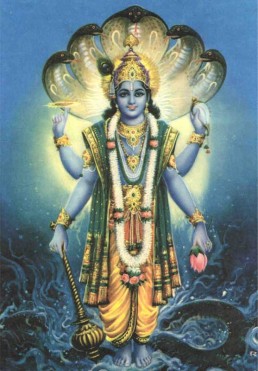Philosophy, in India, is something to live and to practise. Ultimately, it is fulfilled only when we come to experience its goal. It is natural, therefore, that in our scriptures and spiritual text-books, we find a wealth of instructions and elaborate discussions on the theories of Perfection. This stanza is a typical example of the detailed instructions supplied to guide the adventurous seekers trying to follow the “path.” Five conditions are explained herein which are nothing but certain disciplines, adjustments, and re-education of the vehicles of life; and Krishna concludes that those who have accomplished these shall reach the Divine experience and live a life enjoying a sense of supreme fulfilment.
FREE FROM PRIDE AND DELUSION — Both these qualities of pride and delusion indicate a false, exaggerated estimate, of one-self and of others. Erroneous estimate of one’s own importance is called pride and it brings about an enormous amount of heavy responsibilities upon oneself to maintain it. There is no time thereafter to cultivate oneself, or to seek knowledge, or to get truly educated. Similarly, error in judgement regarding things and beings, happenings and situations, in the world outside, is called DELUSION. It makes us live in a false world of our own imagination without actually facing the immediate problems around us, as they really are.
WITH THE EVIL OF ATTACHMENT CONQUERED — To live in the flesh, seeking our life’s fulfilment only in the joy derived from our contact with the sense-objects in the world around us, is to live in the outer layer, cheating ourselves entirely of life’s deeper possibilities. Such an ignorant fool gets extremely attached to the objects of the world, and once this attachment has grown, all his attentions in life will be irresistibly turned towards those objects. Shackled by them, ever dancing to their rhythm of change and destruction, he comes to lay waste his powers, without ever realising the nobler purpose of the Life-Divine.
EVER DWELLING IN THE SELF — Detachment from the world-of-objects is never possible without attaching ourselves to something nobler and diviner. The human mind-intellect-equipment can exist only in the positive contemplation of some object. It cannot remain in a void of not contemplating anything. For example, from tomorrow onwards, let us determine NOT to think of a bald-headed man, let us say, as soon as we wake up; it is absolutely certain that the following morning, the very first thing which we will remember will be a bald-head. But supposing we give the mind a positive point to contemplate upon, “Narayana-Narayana,” we shall find that the mind has totally avoided the thought. In the same way, in order that the mind may not have the evil attachment in it, it should live in a spirit of contemplation upon the Self.
THEIR DESIRES COMPLETELY AT REST — Desire is the function of the intellect. When the intellect desires, the mind starts contemplating upon the desired objects; as the desire, so the thoughts. Therefore, the intellect should be disciplined not to desire the finite joys arising out of the ephemeral sense-objects of the world. When the desires have ended, the mind becomes still.
RELEASED FROM THE PAIRS-OF-OPPOSITES, LIKE PLEASURE AND PAIN — When the body comes in contact with a sense-object, it is the mind that comes to experience, as it were, the final result of the contact as pleasure or pain. Once the mind starts recognising this pair, then it is natural for it to revolt against ‘pain’ and instinctively seek ‘pleasure.’ Unfortunately, in this mad onrush of seeking pleasure and avoiding pain, there is no stability, for the very things that constituted joys yesterday, prove to be sources of sorrow today. To cater to the whims and fancies of such an unsteady entity is to barter away our chances to bring about any cultural unfoldment in ourselves.
And the stanza concludes by a positive and optimistic declaration, having in its force and style, the vehemence of a commandment, when it says, “THE UNDELUDED REACH THAT GOAL-ETERNAL.” Consciousness expressed through Matter-vehicles is the miserable man, torn by his own stresses and strains; and the same Consciousness, gathered from these vehicles and experienced as such, is the Divine moment of Infinite realisation.
THE GOAL IS AGAIN CLEARLY SPECIFIED THUS:

